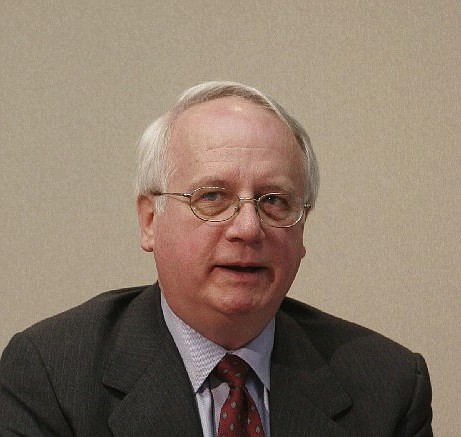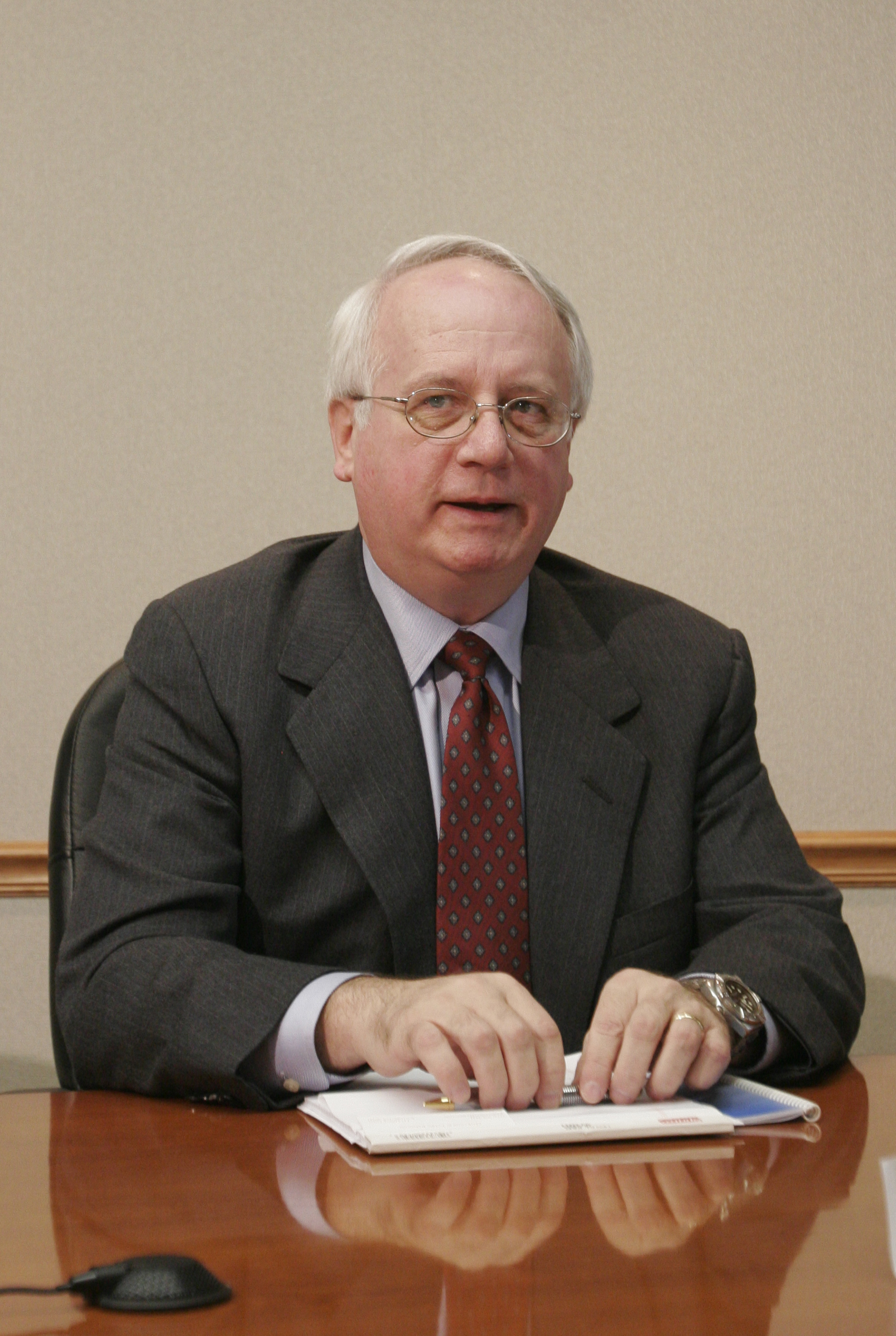A former Chattanooga Industrial Development Board chairman says the City Council's recent move to take more responsibility for the development board doesn't go far enough.
The council voted this week to take full control of the IDB appointment process, cutting out the Chattanooga Area Chamber of Commerce and nixing what council members called a conflict of interest.
The council action follows two lawsuits against the IDB over a tax increment financing deal it approved for a developer on Aetna Mountain and ahead of appointments for four open seats on the seven-member IDB.
Chairman Ric Ebersole retired, one member quit after it was revealed he didn't live in Chattanooga and wasn't eligible to serve on the board, and two other members' terms have expired.
According to the IDB's amended charter, the City Council is to elect its members, although historically membership has been recommended by the Chamber or nominated by the mayor's office and approved by the council.
Ebersole, who retired after serving 23 years, says the public should be more in the loop about property tax breaks for private businesses through payment in lieu of tax agreements, or PILOTs.
Since 2008, the board has approved more than $285 million in deferred-tax deals brought to it by the Chamber, records show. But Ebersole says even board members don't know specifics for how tax agreements were reached for expansions at Volkswagen -- a $33 million tax break over 10 years -- or Coca-Cola Bottling.
"The PILOT agreements are negotiated by the Chamber -- but the Chamber's primary mission is to recruit and retain businesses in Chattanooga. Their mission is not to balance the benefit of taxpayers with business," Ebersole said. "Secondly, there is no transparency. None of us -- neither the IDB or the city of Chattanooga -- knows how these agreements are come to."
But Chamber President Ron Harr cautioned that the Chamber only makes recommendations. The elected officials make the decisions.
"We are the primary recruiting agency for the city and county for job creation," Harr said. "It's not up to us to decide [on PILOT agreements]. And if there's any confusion on the front end, we will call the mayors and get some guidance to see how we should go forward. We are just in the middle, negotiating."
Whether it's the Chamber or the mayors making the call, Ebersole says the deals still deserve more scrutiny.
Tennessee's other large cities -- Memphis, Knoxville and Nashville -- handle PILOT agreements in a much more open, transparent way, he said.
In Memphis, for example, the IDB and several other economic development organizations are managed by the Economic Development and Growth Engine, an umbrella organization.
Reid Dulberger, president and CEO of EDGE, says Memphis residents and other businesses can track PILOT agreements as soon as companies apply for them.
EDGE vets the applications, collects application fees and then sends them on to the IDB. From there, each project gets an independent audit, a cost/benefit analysis and a full report of community impacts.
"We have an accountability process involved in the PILOT program. We have someone making sure investments and job requirements are met. And the companies have to send annual reports to the IDB," Dulberger said. "It's our mission in life that no one should ever have to ask us for an open record, because we post everything."
Nashville and Knoxville follow similar processes.
Locally, companies seeking PILOTs fill out a one-page application including estimates for the proposed capital investment, the number of jobs to be created and the average estimated wages. The public doesn't see anything until the PILOT agreement is submitted to the city and county for approval.
Ebersole isn't alleging any wrongdoing on behalf of the Chamber or city and county governments. He just says the public needs to be able to see how the deals are struck.
"We have always done this thing in such a way that the public always rightfully perceives this as being back-room deals," Ebersole said. "The idea is that none of us -- the public, the council, the bond board -- can explain how the decisions are made."
But City Attorney Wade Hinton, who also represents the IDB, said although the Chamber handles the initial vetting and application process, the county and city mayor make the final deals, and the respective legislative bodies make final approval.
"I think that's where the role of the Chamber is important. We work as a partnership, and the Chamber works to support economic development. But when it comes to the decisions, it's the City Council that has final say," Hinton said.
He added that the city is reviewing its PILOT process, but he would not comment about any details or on whether the mayor's office or City Council would be responsible for any recommended changes. The IDB's charter was created by state law, and the mayor's office is in no way included in the charter.
County Mayor Jim Coppinger doesn't think there's a reason to change anything right now.
Coppinger said county officials are involved in negotiations and the detailed final PILOTs are voted on in public. Further, he said Friday, PILOTS have brought $1.22 billion in capital investment to Hamilton County and helped create 10,205 jobs since he took office in 2011.
"The PILOT agreement is a tool we use to effectively create jobs and have capital investment in our community," he said. "Should every policy be reviewed from time to time? Absolutely. But where we are right now with this, I think it's doing what it's supposed to."
The Chamber and the city and county mayors also use a formula for computing PILOT agreements.
But Harr said it's "not a formulaic kind of thing."
"We do have broad guidelines that we have talked to the city and county about as their agent. ... First, if it's a high number of jobs and high wages, we would be more willing to go further out on an incentive package. Then we look at what needs [the company] would have from the community in terms of infrastructure, and what impacts the project would have on the community," Harr said.
And Chattanooga council members say the PILOT process is OK, too. Now that the council has taken full control of IDB appointments, the Chamber can focus on bringing growth to the city, Councilman Chris Anderson said.
Anderson, who chaired the subcommittee that recommended changing the IDB appointment process, says the Chamber does a good job working with the city and county mayors on PILOTs.
"I have not seen where the system is broken, and if I did, I would be the first one to look into fixing it. I think it's worked well as far as I'm concerned," Anderson said.
Council Chairman Chip Henderson said companies negotiating with the city and county should have some degree of confidentiality.
"The negotiations that go on, particularly with a PILOT concerning a company like VW -- some of these companies have to have a certain amount of confidentiality. I guess I'd have to ask, 'Would we have Volkswagen if we did things that way?'" he said.
Harr also said confidentiality during negotiations is important for growth, but he understands the concern from the public.
"Any time you have public dollars involved there's a need for disclosure and transparency but that needs to come at the end where we are down a path with these companies or otherwise we would not be down that path," Harr said.
Making public a matrix of PILOT benchmarks or criteria would undermine the Chamber's ability to negotiate, he said.
"The reason we don't just publish it, then there's no negotiation. If we just put it up on the Web, then a company would just say 'Well, that's what Chattanooga offers.' And I'll add, the PILOT process has been doing pretty well. Otherwise we wouldn't be in the game," Harr said.
Contact staff writer Louie Brogdon at lbrogdon@timesfreepress.com, at @glbrogdoniv on Twitter or at 423-757-6481.

